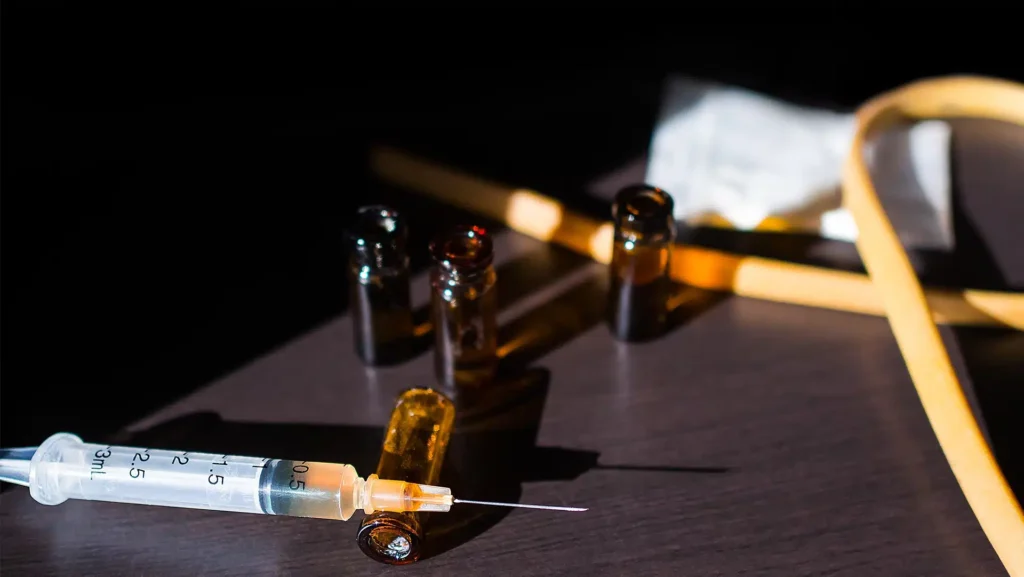Ketamine Addiction India Cases

In recent years, the misuse of ketamine has surged among urban Indian youth, raising urgent alarms for parents, educators, and public health authorities. Once considered a niche anesthetic used mainly in surgical settings, ketamine is now emerging as a popular party drug with serious consequences. The rise of ketamine addiction India cases—particularly in metro cities like Mumbai, Delhi, Bengaluru, and Hyderabad—reflects a growing public health crisis. Rehab centers such as Prayas rehab, one of the best rehab centres in India, are already seeing an increase in admissions related to ketamine misuse and dependence.
What is Ketamine?
Ketamine is a dissociative anesthetic traditionally used in both human and veterinary medicine. It produces sedative, pain-relieving, and hallucinogenic effects ketamine addiction India cases. Although it is listed as an Essential Medicine by the World Health Organization (WHO) due to its safety in controlled medical settings, its powerful psychoactive properties have led to increasing recreational abuse.
In club and rave cultures, ketamine is often referred to as “K,” “Special K,” or “Kit Kat.” The drug induces a ketamine addiction India cases trance-like state, distorted perceptions of reality, and in high doses, what users describe as a “K-hole”—a terrifying out-of-body experience. Such side effects are contributing to a dangerous uptick in ketamine addiction India, particularly among youth aged 16 to 30.
You can read WHO’s classification and concerns about ketamine here.
Ketamine Addiction India: The Growing Crisis
While ketamine misuse has long been a concern in the West, the Indian scenario is rapidly escalating. Seizure data from the Narcotics Control Bureau (NCB) and Directorate of Revenue Intelligence (DRI) reveals rising quantities of illicit ketamine being trafficked into and within India.
-
Mumbai and Goa are among the top destinations for recreational ketamine use during parties and music festivals.
-
In Bengaluru, multiple youth arrests over the past two years involved ketamine addiction India cases possession in tech and college communities.
-
Delhi NCR is witnessing increased online black-market purchases of the drug, often disguised as health supplements.
Rehab facilities are reporting that ketamine addiction India cases often co-occur with alcohol, cannabis, and MDMA use, forming complex addiction patterns.
Why Urban Youth Are Turning to Ketamine
Several factors are contributing to the increased misuse of ketamine among Indian youth:
Perceived safety: Many youth wrongly believe ketamine is safer than other synthetic drugs because of its medical roots.
Accessibility: Despite legal restrictions, ketamine is being diverted from medical supplies and sold via darknet and social media channels.
Mental health issues: Rising anxiety, depression, and stress—exacerbated by academic and career pressure—drive youth toward escapist substances.
Peer influence and pop culture: Glamorization of ketamine use in music videos and party culture lowers its perceived risks.
These factors are making ketamine addiction India a fast-growing concern in urban areas, particularly among affluent or semi-urban student populations.

Effects and Risks of Ketamine Abuse
Unlike many stimulants, ketamine’s dissociative effects can cause immediate physical and psychological harm, including:
Short-term risks: Confusion, dizziness, vomiting, memory loss, and hallucinations
Long-term damage: Bladder damage (ketamine-induced cystitis), kidney impairment, depression, and cognitive decline
Psychological dependency: While ketamine is not traditionally considered physically addictive ,ketamine addiction India cases the psychological dependency is profound, especially in frequent users
A detailed review by Harvard Medical School outlines these risks in their report on ketamine use in psychiatry and abuse trends .
Legal Framework in India
Ketamine is regulated under the Narcotic Drugs and Psychotropic Substances (NDPS) Act. While its medical use is legal, recreational possession, distribution, or consumption without valid medical reason is punishable. However, enforcement often lags behind real-time drug distribution due to the evolving nature of online black markets.
The Central Bureau of Narcotics (CBN) and NCB are working on stricter import/export controls and monitoring online transactions, but loopholes persist—especially in states where awareness about the dangers of ketamine addiction India remains low.
Stay updated with ketamine’s legal classification via India’s CBN.
Role of Rehabilitation Centres in Addressing Ketamine Addiction
Specialized addiction recovery centres like Prayas rehab are evolving their programs to include support for emerging addictions like ketamine addiction India cases. These cases often involve complex psychological factors such as trauma, ketamine addiction India cases escapism, and mood disorders. A typical treatment plan for ketamine addiction India may include:
Medical detoxification
Cognitive Behavioural Therapy (CBT)
Mindfulness-Based Relapse Prevention (MBRP)
Family counseling and lifestyle restructuring
What sets Prayas rehab apart as one of the best rehab centres in India is its individualized care—combining evidence-based treatment with holistic wellness practices like yoga, meditation, and nutritional therapy. This approach is critical, as many ketamine users relapse without proper aftercare and community support.
Public Awareness and Prevention Measures
India’s drug awareness programs have largely focused on opioids, alcohol, and tobacco. But the surge in ketamine use calls for targeted interventions:
School and college awareness drives: Need to educate students on the dangers of designer drugs like ketamine.
Parental involvement: Increased monitoring and open communication at home.
Digital surveillance and regulation: Government must work with tech companies to limit online drug sales.
The Ministry of Social Justice and Empowerment has begun discussions to update national de-addiction strategies to include newer threats like ketamine.
Conclusion
The rise of ketamine addiction India is a wake-up call for parents, educators, policymakers, and healthcare providers. With growing misuse among urban youth, the need for awareness, prevention, and targeted rehabilitation has never been more urgent. Organizations like Prayas rehab are stepping up with comprehensive recovery programs tailored for modern addiction challenges. As India prepares for a new wave of substance misuse trends, timely action and collective awareness can help ensure that our youth are protected, informed, and empowered to make healthier choices.